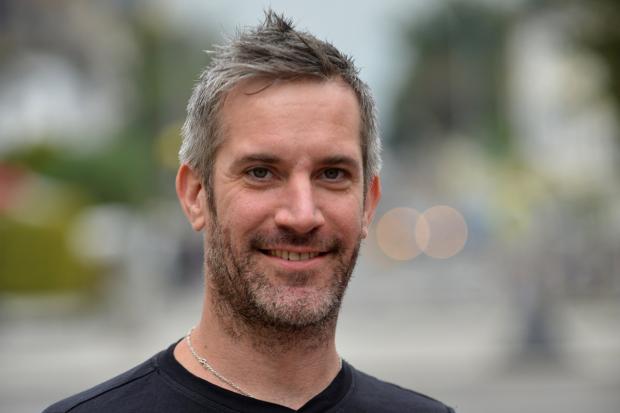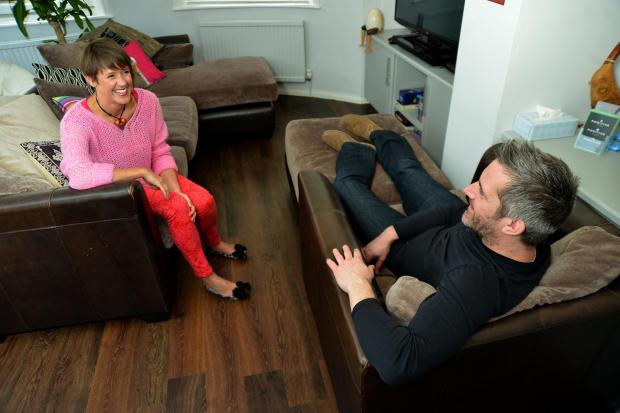How Hypnotherapy Can Be Used to Treat PTSD
By Sian Ferguson | March 20, 2017 | 2:30pm
https://www.pastemagazine.com/articles/2017/03/how-hypnotherapy-can-be-used-to-treat-ptsd.html
How Hypnotherapy Can Be Used to Treat PTSD
For most of us, the word “hypnosis” probably conjures up the image of an old man swinging a pendulum in front of a patient’s weary eyes. Perhaps you think of a show in which random audience members are hypnotized to think they’re chickens or dogs.
Hypnosis isn’t something most people associate with mental health treatments. But hypnotherapy—a clinical practice that uses hypnosis techniques but delves deeper into a patient’s psychology—is actually a valid therapeutic form that is particularly effective for treating PTSD (post traumatic stress disorder).
Prove it, I thought when I recently found myself in a hypnotherapist’s waiting room with a few other PTSD sufferers.
Turns out, we were a few of many people who found a sense of clarity and peace after our hypnotherapy sessions. When I left my session, I felt as though it helped me remember confusing, unclear traumatic memories and reapproach those memories with a sense of calm and control.
The evidence is more than anecdotal. A 2008 study showed that hypnotherapy had a positive effect on a small group of subjects with combat-related PTSD. Hypnotherapy seemed to decrease PTSD symptoms, improve the subjects’ sleep and decrease intrusion and avoidance reactions. Other studies have shown that it’s an effective form of treatment that’s also long-lasting.
The British Medical Council, the American Medical Association and the American Psychological Association have all endorsed hypnotherapy as a valid therapeutic procedure.
But how exactly does it work?
Michael Munion, MA, LPC, executive team member of The Pain Project, says that hypnotherapy is one of many approaches that could be used to treat PTSD.
“Our experiences (good and bad) are stored in the brain through encoding in actual neurologic structural change,” he explains. “These neural connections are physically linked to other encodings of similar nature. Just as a certain song on the radio may recall a pleasant time in high school, a particular smell or sound, for example, may recall a traumatic event in which a similar smell or sound was involved. We call this a trigger. Response to those triggers are a result of chemicals and hormones released in the brain.”
Because traumatic events are out of the ordinary and painful, those memories don’t easily connect with other life experiences. Hypnosis may be used to help link the patient’s strengths as well as a sense of calm and mastery to the original trauma. This aids in the healing process. Additionally, hypnosis can be used to enable the patient to visualize a happier, healthier future and a healing process generated by their own mind. “Essentially, hypnosis can give the brain the tools and experiences it needs to reprogram itself for better functioning and diminished discomfort,” Munion says.
Scott Schmaren, an internationally-known “NeuroPerformanceologist” (AKA hypnotist), has been treating clients with PTSD for years. “PTSD is a response to trauma that has affected the subconscious mind, and hypnosis is an excellent way to remove that trauma from the subconscious mind—permanently,” Schmaren says. “When a PTSD attack happens, the subconscious mind reinforces the attack as a natural response to certain physical triggers. After those triggers or anchors have been reinforced several times then the original trauma is not necessary to set off the attack. Only activating or firing off the anchors are necessary to induce an attack.”
Schmaren first tries to remove the negative emotions associated with the traumatic event that caused the PTSD. After that, he tries to change how his client responds to the triggers that can cause panic.
When it comes to “unblocking” repressed traumatic memories, both Schmaren and Munion advise that it needs to be approached carefully. “Defense mechanisms like [memory] repression are there to help people cope, not just hold them back from progressing, even though that may sometimes happen,” Munion says. Unblocking these memories via hypnosis can help one identify a source of trauma, but the experiences one has under hypnosis can be vivid and thus deeply upsetting.
Even in a world where we’re becoming increasingly aware of mental health issues, finding accessible, compassionate and effective mental healthcare is a struggle. Many people try alternative medicine or out-of-the-box forms of therapy when we get frustrated with the traditional Western medical system. In that regard, seeking out a hypnotherapist might seem like a useful tactic for many of us—but if we seek hypnotherapy, we should do so with caution.
It’s essential that your hypnotherapist has experience working with PTSD and that they have credentials from an accredited hypnosis organization. Many hypnotists specialize in weight control or cutting out habits like smoking, but this doesn’t mean they have a good understanding of PTSD.
“Be prepared to discuss the history of the trauma, the history of treatment and the expectations or goals for treatment,” Munion advises. “Make sure you have a clear understanding of the therapist’s approach to the problem and a clear understanding of the basics of hypnosis.”
Schmaren views overcoming PTSD as a journey that needs to be approached with persistence and patience. “My advice to them would be to have patience with themselves and the process of overcoming PTSD,” he says.
Hypnotherapy isn’t for everyone—after all, not everyone is comfortable with the idea of unlocking their subconscious minds. But it can be another tool in the toolbox for PTSD treatment.
Sian Ferguson is a freelance writer based in South Africa.









